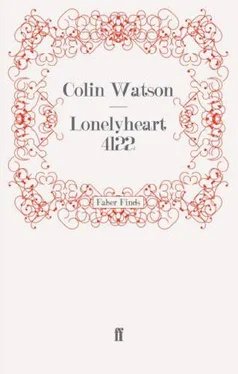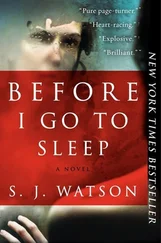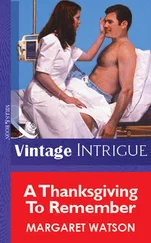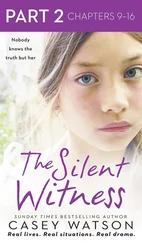“I’m a police inspector, actually. Purbright.”
“How do you do.”
“How do you do, Mr Capper.”
“Fair.”
“Barley looks well. That’ll not leave you with much straw.”
“It’s a new one, that. Supposed to be all head and no arse.”
“That’s how you want it.”
“Aye.”
Joe Capper might well have been fed on his new barley. He, too, had a large robust head, from which hair grew upwards in spikes. A nicely ripened complexion considerably modified the effect of the redness of his eyes. His body, though scarcely stalk-like, was short and lean. He wore a heavy tweed jacket, ancient, mudstained jodhpurs, and a pair of Wellingtons so many sizes too big that Purbright could have sworn that they sent echoes of his conversation-back up his legs.
“Like a drink?”
“I should,” said the inspector.
Mr Capper went to a wooden cupboard the size of a bus shelter. Within its depths Purbright saw the window light reflected from the glazed bellies of half a dozen of the kind of stone jar that in the country is called a grey hen. Joe carried back to him a tumbler of honey-coloured liquid.
“Hollyhock,” he announced.
Purbright accepted the diagnosis without the least sign of alarm. “Cheers!” he said.
“All the best,” responded Mr Capper, going into a resolute swig.
Purbright took a sip. A team of horses with white-hot hoofs galloped down his throat.
“Very nice,” he said.
For a minute or two, a comfortable silence was maintained. Again Purbright let his gaze wander round the room. He was wondering how Mr Capper managed to go about his tasks on the farm without serious risk of the fortress falling in his absence.
He looked at the window and saw something he had not noticed before. To its catch was fastened a cord that ran upwards and over a hook in one of the ceiling beams. And suspended from this cord, revolving gently in a draught from the window, was a china vase of great size and tortuous design.
Mr Capper saw the direction his guest’s interest had taken.
“Real heirloom, that is,” he said.
“Ah?”
“The wife’s very fond of it.”
“I should think so.”
There was another pause, by no means uneasy. Purbright boldly tilted his glass and endured a second stampede of infernal stallions past his gullet. This time the after effects were quite pleasant; he felt capable and cunning.
“I wonder,” he said, “if you know anything about jury service?”
“Not the first thing,” said Mr Capper.
Good, thought Purbright. “The point is,” he went on, “that you’re down to be called to quarter sessions next week. I suppose that would be a bit awkward for you—as a farmer, I mean.”
“Bloody awkward.” Mr Capper glanced anxiously at the window and the pendant heirloom.
“In that case it might not be a bad idea for you to authorize your wife to take your place.”
“For me to tell her, do you mean?”
“Oh, no. We’d do the calling. All you need do is to give permission in writing. I’ll take it now, if you like.”
In an instant the jubilant Mr Capper had produced a pad of cattle cake order forms and a pen. He turned one of the forms over and smoothed it flat.
“It’ll be a nice little change for her,” he said to Purbright. “Take her out of herself.”
“Just put: ‘I hereby authorize my wife’—then her full name—‘to undertake jury service when so required’. And sign it.”
“How do you spell authorize?”
Purbright told him. There were one or two more little difficulties. But the final document was legible and accurate enough.
One thing it most manifestly was not—a product of the same hand that had penned the three letters in Mrs Bannister’s bedroom drawer.
“Mind you,” said Purbright, feeling some qualms as he pocketed the paper, “it’s not certain that your missus will be needed. I shouldn’t say anything to her.”
“Oh, I’d not have done that anyway,” Mr Capper assured him. “It’d spoil the surprise.”
After declining, with every show of regret, a second charge of his host’s Hollyhock Holocaust, the inspector took his leave and departed by the recommended exit. Back doors, he reflected, could all too easily become a way of life.
The Old Rectory at Kirkby Willows was a tall, unattractive, late Victorian pile, set in a dank plantation of laurel and rhododendron. Several of the windows were uncurtained. One, on the upper floor, had been broken and masked with a sheet of hardboard. Purbright’s use of the heavy ring knocker produced a hollow reverberation like an old man’s cough. He had little hope of an answer.
Yet the door opened almost at once. He saw a man of perhaps thirty-five with a beard of that rather indeterminate kind that is generally vouchsafed to those who regard beard growing as a serious matter of policy. Henry Rusk also wore a dressing gown and the querulous expression of a disturbed creator. (Or so Purbright interpreted it.) His hair was light, almost blond.
Purbright announced his identity but not his business. That he had not yet decided himself. But policemen do not need to say why they have called. Nine householders out of ten are concerned at that stage only with getting them off the doorstep; they would be just as hospitable towards a loud-voiced debt collector or a drunken auntie.
“We’re just having tea,” said Henry Rusk, leading the inspector through a doorway on the left of the entrance lobby.
In the centre of an otherwise almost totally unfurnished room was a wooden kitchen table at which a woman was sitting. She was perhaps a little younger than Rusk, at whom she peered devotedly through a pair of black framed spectacles with thick lenses. Her black hair was straight and cut to the same length all the way round her head.
Rusk indicated her to Purbright.
“My mistress,” he said. “She’s called Janice.”
He resumed his seat at the table, leaving Purbright to dispose himself as he thought fit. The only alternative to standing proved to be a tea chest lying on its side in the big bay window.
As Purbright lowered himself on to that, he saw that Janice had before her a large brown loaf. At a nod from Henry she laboriously sawed off a slice which she handed over on the point of the knife. He buttered it while she watched.
“Shrimp,” Henry said, tersely.
Janice leaned forward, short-sightedly scrutinized a row of four or five little jars, then slid one across. Without acknowledgment, Henry picked it up and gouged out some of the contents. Janice neither ate nor drank anything herself.
The room was very cold. A smell of wet plaster pervaded it.
“And what are you after, then?” Henry spoke with his mouth full. He didn’t look up from his plate.
Purbright resolved at that moment to be neither devious nor tactful. The tea chest was exceedingly uncomfortable.
“I understand you are a client of the Handclasp House matrimonial bureau.”
“I was,” replied Henry with neither hesitation nor, apparently, concern. “But I got fixed up.”
Janice blushed happily.
“At first shot?” Purbright did his best to sound rude and was fairly successful
“No.”
“How many?”
“I don’t see what the hell it’s got to do with you, but it so happens there were two others. One had been looking ten years for somebody to put her into a book. I put her on the next bloody bus. Then there was some bint who wanted to bear a beautiful child without taking her knickers off. God, this damn country’s full of walking middle-class fantasies. It’s got no loins any more.”
Henry glared at the loaf and Janice hastily began sawing it.
“Did either of your earlier, er, applicants happen to be called Reckitt?” Purbright asked. “Or Bannister?”
Читать дальше












